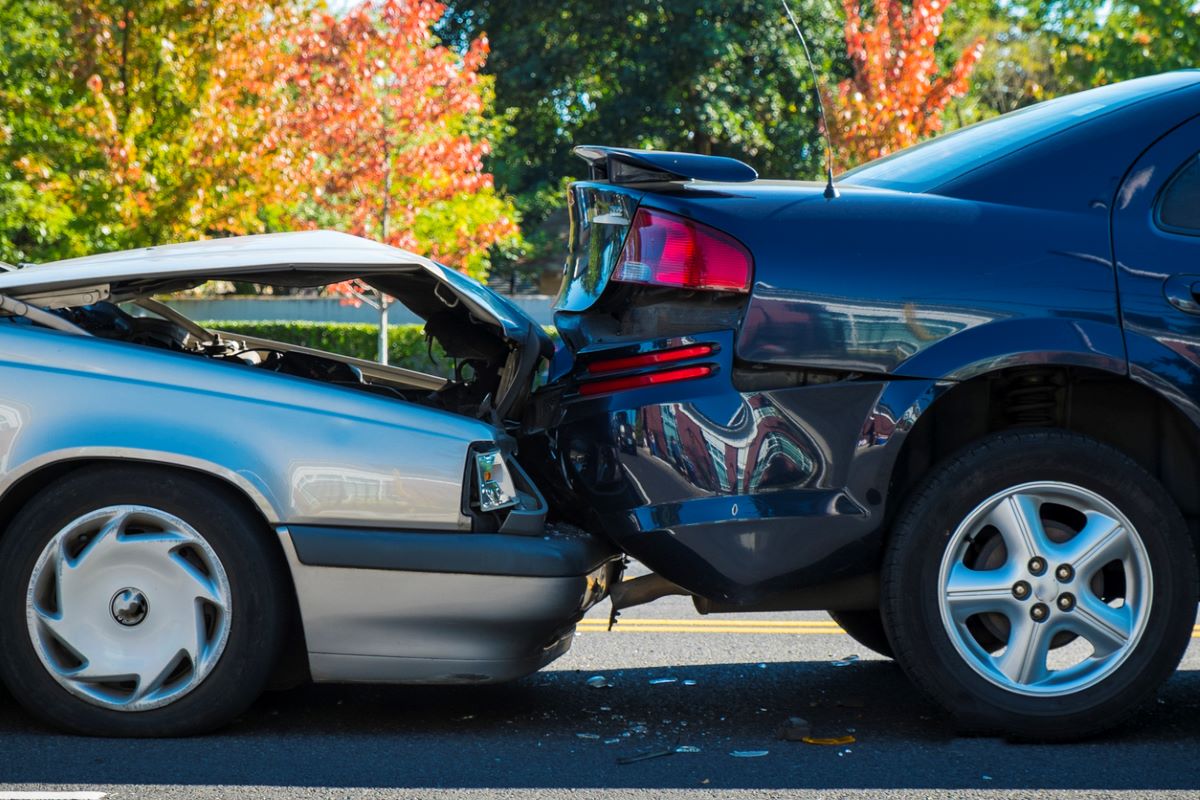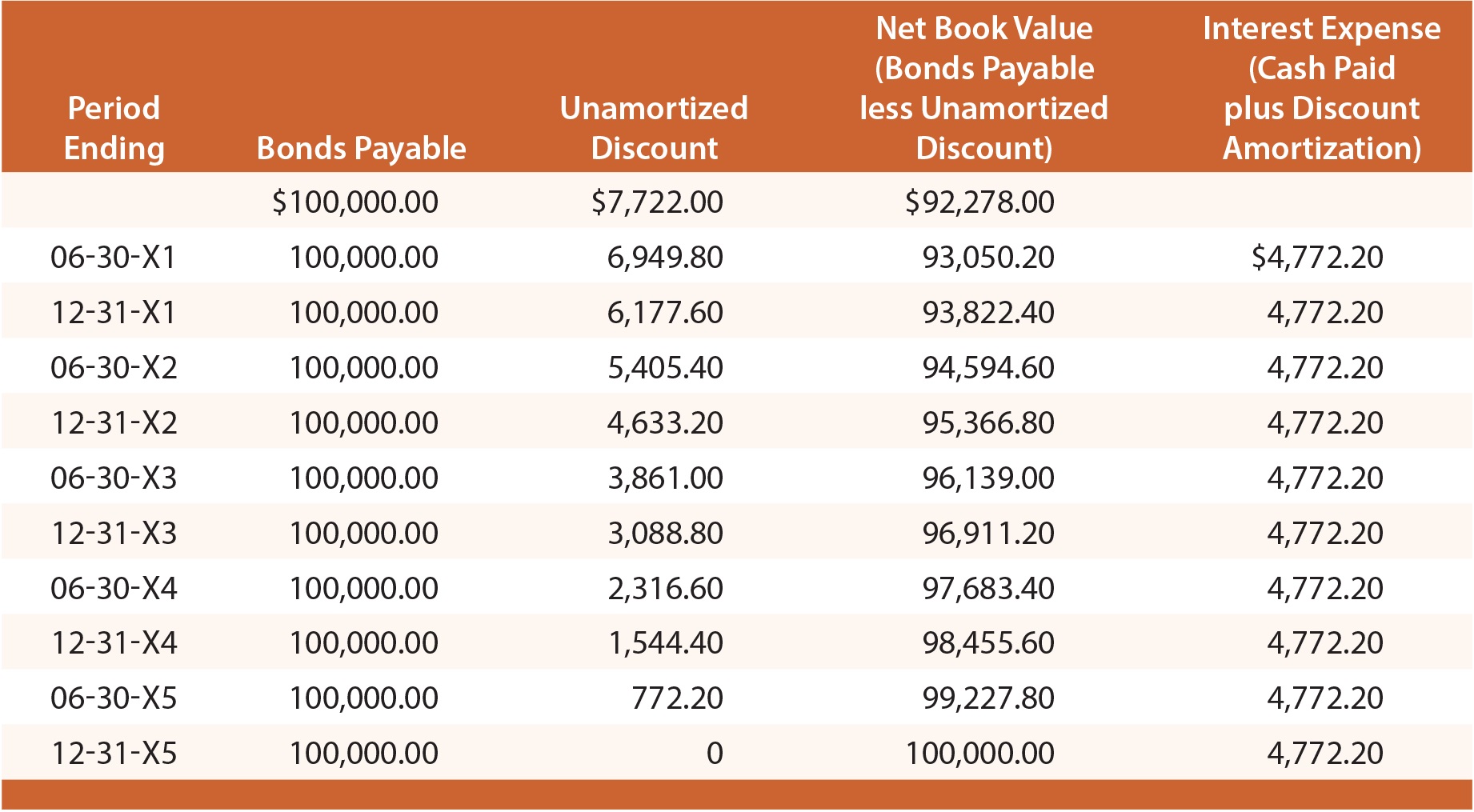

Finance
What Makes A Car A Sports Car For Insurance
Published: November 28, 2023
Find out the key factors that determine whether a car is classified as a sports car for insurance purposes, including its finances and more.
(Many of the links in this article redirect to a specific reviewed product. Your purchase of these products through affiliate links helps to generate commission for LiveWell, at no extra cost. Learn more)
Table of Contents
Introduction
Welcome to the exciting world of sports cars and insurance. If you’re a car enthusiast, you already know the thrill of driving a sleek and powerful sports car. However, when it comes to insuring your beloved vehicle, things can get a bit more complex.
Insurance for sports cars can be more expensive compared to regular automobiles. This is due to several factors, such as the higher value of the car, increased risk of accidents due to the vehicle’s performance capabilities, and the potential cost of repairs or replacement parts.
Understanding what makes a car a sports car for insurance purposes and how it can impact your insurance premiums is vital. In this article, we will dive into the world of sports cars and shed light on the factors that determine their classification, the features and characteristics that set them apart, and the insurance considerations and tips for getting affordable coverage.
Whether you already own a sports car or are considering purchasing one, this article will provide valuable insights to help you navigate the insurance landscape and make informed decisions to protect your prized possession.
Definition of a Sports Car
Before we delve into the specifics of insuring a sports car, let’s first establish what qualifies as a sports car. While the term “sports car” is often used interchangeably with terms like “performance car” or “luxury car,” there are some distinct characteristics that define a sports car.
A sports car is a high-performance, two-seater or 2+2 seater vehicle designed for luxurious and exhilarating driving experiences. It is typically characterized by its powerful engine, aerodynamic design, and agile handling capabilities. Sports cars are built with an emphasis on speed, acceleration, and nimbleness, making them a favorite among car enthusiasts and thrill-seekers alike.
In addition to their performance capabilities, sports cars often feature stylish and attention-grabbing designs. They may have sleek and aerodynamic bodies, low ground clearance, and eye-catching details like aggressive front grilles, muscular wheel arches, and rear spoilers. These design elements not only enhance the car’s aesthetic appeal but also contribute to its performance and aerodynamics.
It’s worth noting that sports cars can be further categorized into different subtypes based on their specific characteristics and intended use. These subcategories include supercars, grand tourers (GTs), and sports sedans, each catering to different driving preferences and needs.
Supercars are the crème de la crème of sports cars. They are typically ultra-high-performance vehicles with jaw-dropping acceleration, top speeds, and cutting-edge technology. Supercars are often manufactured in limited quantities, boasting exclusivity and astronomical price tags.
Grand tourers, on the other hand, focus more on providing a balance between high-performance driving and long-distance comfort and luxury. They are designed for drivers who want speed and exhilaration without sacrificing comfort and practicality. Grand tourers excel in providing a smooth and comfortable ride even on extended journeys.
Sports sedans, as the name suggests, are four-door sports cars that combine performance and practicality. These cars offer the thrill of sports car driving while providing additional interior space and passenger comfort. Sports sedans are often favored by those who require a practical daily driver with a touch of sports car flair.
Now that we have a clear understanding of what defines a sports car, we can explore the factors that come into play when determining a car’s classification as a sports car for insurance purposes.
Factors that Determine a Car as a Sports Car
Insurance companies use various factors to determine whether a car qualifies as a sports car. These factors may vary slightly between insurers, but they generally include the following:
- Engine Performance: One of the most significant factors in categorizing a car as a sports car is its engine performance. Sports cars typically have high-powered engines that deliver exceptional speed and acceleration. The horsepower, torque, and overall performance of the engine play a crucial role in determining a car’s classification.
- Design and Body Style: The design and body style of a car also contribute to its classification as a sports car. Sports cars usually feature sleek, aerodynamic designs that prioritize performance and handling. Two-seater or 2+2 seater configurations, with low-slung bodies and aggressive styling cues, are often associated with sports cars.
- Weight-to-Power Ratio: The weight-to-power ratio is a critical factor in determining a car’s performance capabilities. Sports cars typically have a low weight-to-power ratio, meaning they have a relatively low weight compared to the power output of their engine. This ratio contributes to the car’s agility and acceleration.
- Handling and Suspension: Sports cars are known for their superior handling abilities. They often feature advanced suspension systems, performance-tuned chassis, and precise steering to provide exceptional control and cornering capabilities. The car’s ability to grip the road and offer responsive handling is an important consideration for insurers.
- Braking System: Sports cars are equipped with high-performance braking systems to ensure optimal stopping power. Enhanced brake specifications, such as larger disc rotors, high-performance brake pads, and advanced braking technologies, are common features of sports cars.
- Transmission: The type of transmission also plays a role in classifying a car as a sports car. Manual transmissions are often associated with sports cars due to the increased control and engagement they provide. However, there are also sports cars with advanced automatic or dual-clutch transmissions that offer lightning-fast gear changes.
- Brand and Model Reputation: Certain brands and models have a long-standing reputation for producing sports cars. Insurance companies may consider the brand and model’s history and reputation when determining whether a car qualifies as a sports car.
- Price and exclusivity: The price tag and exclusivity of a car can also influence its classification as a sports car. Luxury sports cars and limited-edition models often come with higher insurance premiums due to their higher value and rarity.
It’s important to note that these factors may vary among different insurance providers. It’s a good idea to consult with your insurance agent to determine how your specific vehicle is classified and the implications it may have on your insurance coverage and premiums.
Sports Car Features and Characteristics
Sports cars are known for their unique features and characteristics that set them apart from everyday vehicles. These features enhance their performance, handling, and overall driving experience. Here are some of the key features commonly found in sports cars:
- High-Performance Engines: Sports cars are equipped with powerful engines to deliver thrilling acceleration and top speeds. These engines are designed to provide superior performance, with factors like horsepower, torque, and rapid throttle response.
- Lightweight Construction: Sports cars often utilize lightweight materials like carbon fiber, aluminum, and high-strength steel to reduce weight and enhance performance. The lighter the car, the better its power-to-weight ratio, resulting in improved acceleration and agility.
- Aerodynamic Design: Sports cars feature sleek and aerodynamically optimized designs to reduce drag and improve handling at high speeds. Sculpted body lines, streamlined silhouettes, and functional aerodynamic elements like spoilers and vents help maximize downforce and stability.
- Performance Suspension: Sports cars employ advanced suspension systems that prioritize responsiveness and precise handling. Features like adjustable dampers, stiff springs, and sophisticated chassis tuning enhance cornering ability while maintaining a comfortable ride.
- Advanced Braking Systems: To match their high-speed capabilities, sports cars are equipped with performance-grade braking systems. Upgraded brake pads, larger rotors, and advanced braking technologies allow for shorter stopping distances and excellent braking performance.
- Low Ground Clearance: Sports cars often have lower ride heights and reduced ground clearance, contributing to a lower center of gravity. This design element improves stability, cornering ability, and overall handling characteristics.
- Driver-Centric Cockpit: Sports cars prioritize the driver’s experience with a focus on ergonomics and intuitive controls. The cockpit is designed to provide a seamless connection between the driver and the car, with well-positioned controls, supportive seats, and a sporty steering wheel.
- Performance Tires: Sports cars are typically equipped with high-performance tires that offer exceptional grip and traction. These specialized tires provide improved handling in both dry and wet conditions, ensuring optimal performance on various road surfaces.
- Exhaust System: Sports cars often feature enhanced exhaust systems that produce a sporty and aggressive sound. These systems not only add to the overall driving experience but also optimize engine performance by improving exhaust flow.
- Advanced Technology: Sports cars often incorporate cutting-edge technology to enhance performance and safety. Features like traction control, stability control, advanced driver-assistance systems, and advanced infotainment systems are commonly found in modern sports cars.
These features and characteristics combine to create a thrilling and dynamic driving experience that sets sports cars apart from other vehicles on the road. From the moment you sit behind the wheel, you can feel the power and precision that sports cars are renowned for.
Insurance Considerations for Sports Cars
Insuring a sports car comes with its own set of considerations. Due to the unique characteristics and performance capabilities of sports cars, insurance providers assess certain factors that may affect your coverage and premiums. Here are some important insurance considerations for sports car owners:
- Higher Insurance Premiums: Sports cars are generally more expensive to insure compared to regular vehicles. This is due to the higher value of sports cars, the increased risk of accidents associated with their performance capabilities, and the potentially high cost of repairs or replacement parts.
- Deductibles and Coverage Limits: Insurance providers may set different deductibles and coverage limits for sports cars. The deductible is the amount you pay out of pocket before your insurance coverage kicks in, while the coverage limit is the maximum amount your insurance company will pay in the event of a claim. It’s important to review these terms carefully to ensure they align with your needs and budget.
- Customization and Modifications: Sports car owners often customize or modify their vehicles to enhance performance or aesthetic appeal. However, it’s important to inform your insurance provider about any changes made, as certain modifications can impact your coverage. Some modifications may require additional coverage or may even void your insurance if not disclosed.
- Usage and Mileage: How you use your sports car and the mileage you put on it can affect your insurance premiums. If your sports car is used for daily commuting or long-distance driving, it may be considered a higher risk and result in higher premiums compared to a vehicle used for occasional leisure drives.
- Storage and Security: Insurance providers often consider where you store your sports car and the security measures you have in place. Keeping your car in a secure garage or installing anti-theft devices can help lower your insurance premiums as it reduces the risk of theft or damage.
- Driving Record: Your driving record plays a significant role in determining your insurance premiums. A history of accidents or traffic violations can result in higher premiums for sports car insurance. Conversely, a clean driving record with no claims or violations can help lower your insurance costs.
- Insurance Coverage Options: Sports car owners may want to consider additional coverage options beyond the minimum liability coverage. Optional coverages like collision coverage, comprehensive coverage, and uninsured/underinsured motorist coverage can provide added protection for your sports car.
- Specialized Insurance Providers: Some insurance companies specialize in providing coverage for sports cars. These providers understand the unique needs and risks associated with sports cars and may offer specialized policies tailored to sports car owners.
It’s important to have an open and transparent discussion with your insurance agent to ensure you have the appropriate coverage for your sports car. They can help you understand the specific considerations and options available to protect your investment and provide you with peace of mind on the road.
Impact of Sports Car Classification on Insurance Premiums
The classification of a car as a sports car can have a significant impact on insurance premiums. Insurance providers consider several factors when determining the cost of insuring a sports car, and these factors contribute to higher premiums compared to regular vehicles. Here are some ways sports car classification affects insurance premiums:
- Higher Risk Profile: Sports cars are generally seen as higher-risk vehicles due to their performance capabilities. The powerful engines, quick acceleration, and higher top speeds of sports cars increase the likelihood of accidents or incidents on the road. As a result, insurance companies adjust premiums to account for this heightened risk.
- Repair and Replacement Costs: Sports cars often have specialized parts and technology, which can be expensive to repair or replace. In the event of an accident, the cost of repairing a sports car may be significantly higher than repairing a standard vehicle. Insurance companies take this into account when calculating premiums to ensure they can cover the potential costs of repairs or replacements.
- Statistical Data: Insurance providers rely on statistical data to assess risk. Historical data on sports car accidents, theft rates, and repair costs help insurers determine the likelihood of claims and the associated expenses. If the data shows a higher frequency of claims or more severe accidents involving sports cars, it can lead to higher insurance premiums.
- Targeted by Thieves: Sports cars are often targeted by thieves due to their desirability and higher value. Insurance companies consider the increased risk of theft when calculating premiums for sports car owners. Taking steps to secure your vehicle, such as installing anti-theft devices or keeping it in a secure garage, can help lower the risk and potentially reduce your premiums.
- Repair Times: The availability and time required to repair a sports car can also impact insurance premiums. If specialized parts or expertise are needed, it may result in longer repair times and higher costs. Insurance companies factor in these considerations when determining premiums for sports car owners.
- Driving Behavior: Insurance premiums are influenced by driving behavior. Sports car owners may be perceived as more likely to engage in higher-risk driving behaviors, such as speeding or aggressive driving. Insurance providers may assess driving records and consider the potential impact on claims frequency and severity when setting premiums.
- Geographical Location: The location where the sports car will be primarily driven and stored can also affect insurance premiums. Areas with higher rates of accidents, theft, or extreme weather conditions may result in higher premiums for sports car coverage.
- Exclusivity and Rarity: Some sports cars, particularly limited-edition or exotic models, may have higher insurance premiums due to their exclusivity and rarity. The higher value and specialized nature of these vehicles can result in increased premium costs.
It’s important to note that insurance premiums can vary significantly between different insurance providers. Shopping around and comparing quotes from multiple insurers can help you find the best coverage at a competitive price for your sports car.
Tips for Getting Affordable Insurance for Sports Cars
While insurance premiums for sports cars tend to be higher than for regular vehicles, there are ways to potentially reduce the cost and obtain more affordable coverage. Consider the following tips to help lower your insurance premiums for your sports car:
- Shop Around: Obtain quotes from multiple insurance providers to compare prices and coverage options. Each insurer may have different criteria for determining premiums, so taking the time to shop around can help you find the most competitive rates for your sports car.
- Consider Higher Deductibles: A higher deductible means you will pay more out of pocket in the event of a claim. By opting for a higher deductible, you can lower your insurance premiums. However, make sure the deductible amount is something you can comfortably afford if you need to make a claim.
- Take Advantage of Discounts: Insurance providers often offer various discounts that can help reduce your premiums. These discounts may include safe driver discounts, multi-policy discounts, vehicle safety feature discounts, or bundling your homeowners or renters insurance with your sports car insurance. Inquire with your insurer about available discounts and eligibility requirements.
- Safe Parking and Security Measures: Parking your sports car in a secure garage or utilizing other security measures such as car alarms or tracking devices can lower the risk of theft or damage. Insurance companies may offer discounts for having these security measures in place.
- Consider Usage-Based Insurance: Usage-based insurance programs track your driving behavior and use the data to determine your premiums. If you drive your sports car less frequently or have safe driving habits, this type of insurance can result in lower premiums based on your actual usage and behaviors behind the wheel.
- Take Defensive Driving Courses: Completing a recognized defensive driving course can showcase your commitment to safe driving and may qualify you for a discount on your insurance premiums. Check with your insurance provider to see if they offer discounts for completing these courses.
- Maintain a Clean Driving Record: Avoiding traffic violations and accidents can help keep your insurance premiums in check. Safe driving and maintaining a clean driving record over time demonstrate responsible behavior and can contribute to lower insurance costs.
- Consider Liability Only Coverage: If the value of your sports car is lower or if you have alternative means to cover potential repairs or replacement costs, you may opt for liability-only coverage. This type of coverage protects you in case you cause damage or injury to others and can help lower your premiums.
- Review Your Coverage Regularly: As the value of your sports car and your driving habits change over time, it’s essential to review your insurance coverage periodically. Adjusting your coverage limits, deductibles, or exploring new discounts can help ensure you’re getting the most appropriate and affordable coverage for your needs.
Remember to discuss these tips and any other potential ways to reduce your premiums with your insurance agent. They can provide personalized guidance and help tailor your coverage to your specific needs and budget.
Conclusion
Insuring a sports car comes with its own unique considerations, but with the right knowledge and approach, you can navigate the insurance landscape and find affordable coverage that protects your prized possession. Understanding what defines a sports car for insurance purposes and the factors that influence insurance premiums is crucial.
Sports cars are characterized by their high-performance engines, sleek designs, and agile handling capabilities. These features contribute to their classification as sports cars, which often results in higher insurance premiums compared to regular vehicles. Insurance providers take into account factors such as the car’s risk profile, repair costs, and statistical data when determining premiums.
There are several strategies you can employ to potentially reduce the cost of insuring your sports car. Shopping around for quotes, considering higher deductibles, taking advantage of discounts, and implementing security measures can all contribute to more affordable coverage. You may also explore usage-based insurance, maintain a clean driving record, and regularly review your coverage to ensure it aligns with your needs and budget.
Remember, insurance needs for sports cars may vary, so it’s important to consult with your insurance agent to understand how your specific vehicle is classified and to discuss coverage options that suit your unique situation.
While insuring a sports car may pose some challenges, the exhilaration and joy of driving one make it all worthwhile. By securing proper and affordable insurance coverage, you can protect your investment and enjoy the thrilling experience of driving your sports car with peace of mind.














